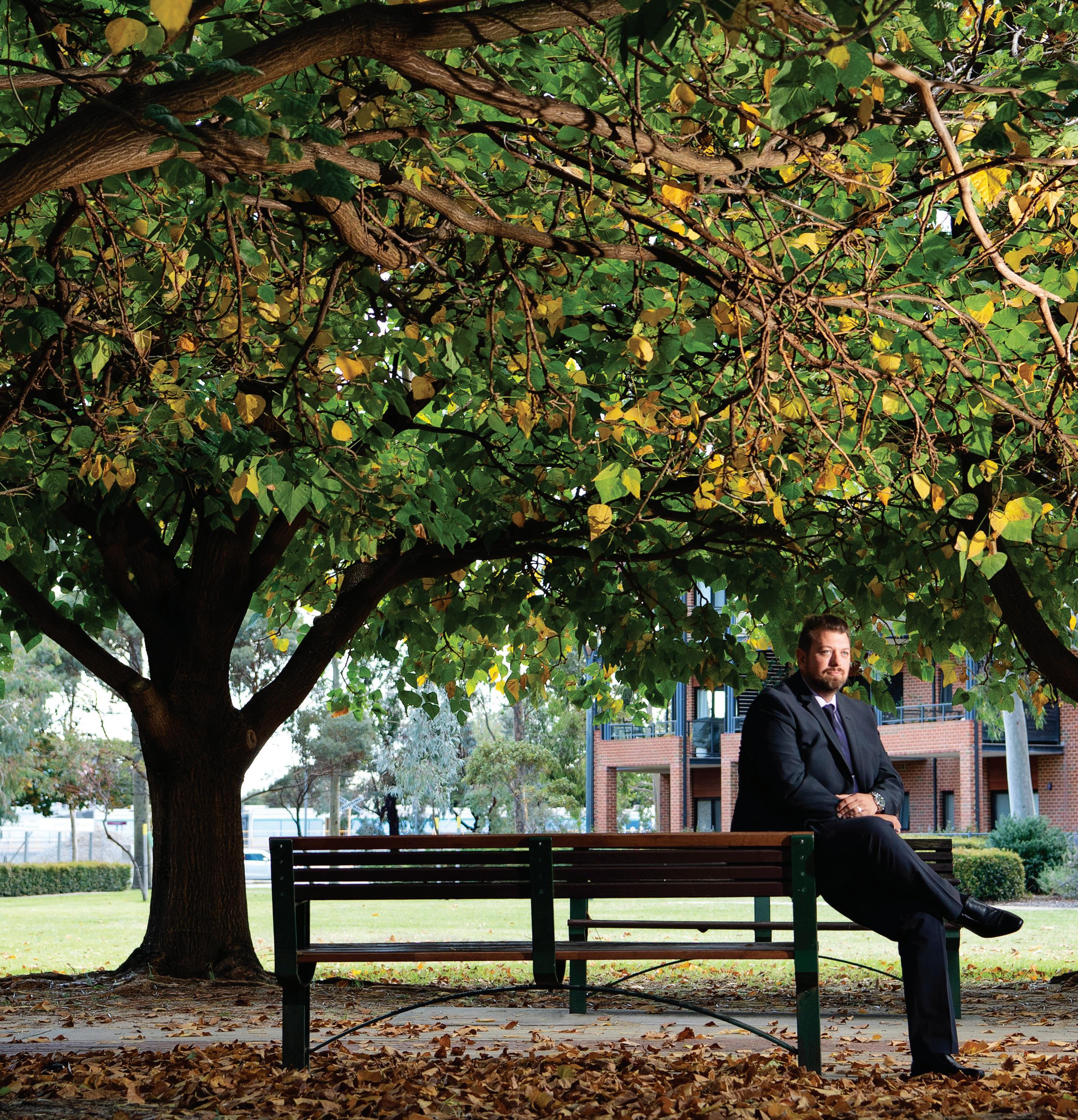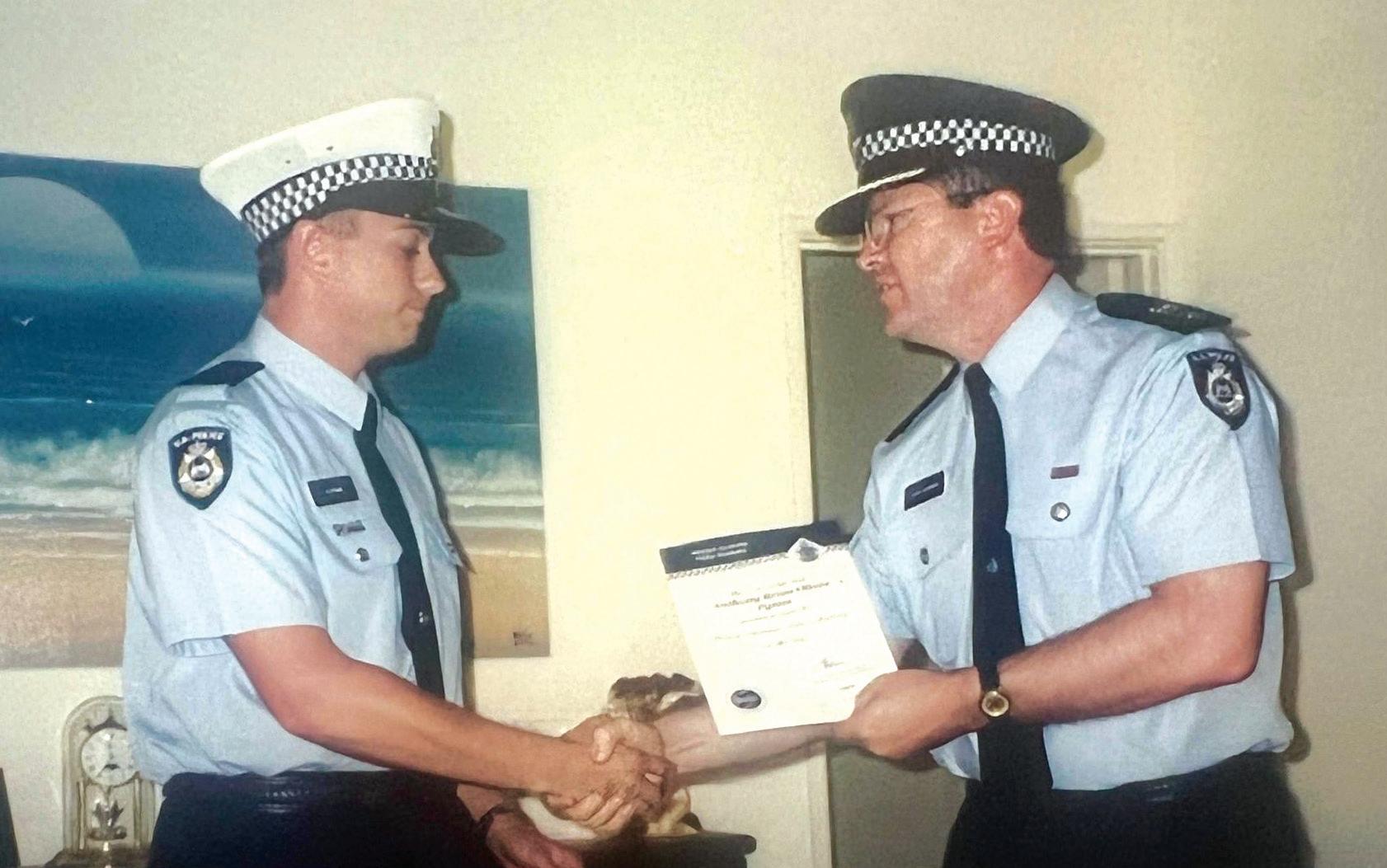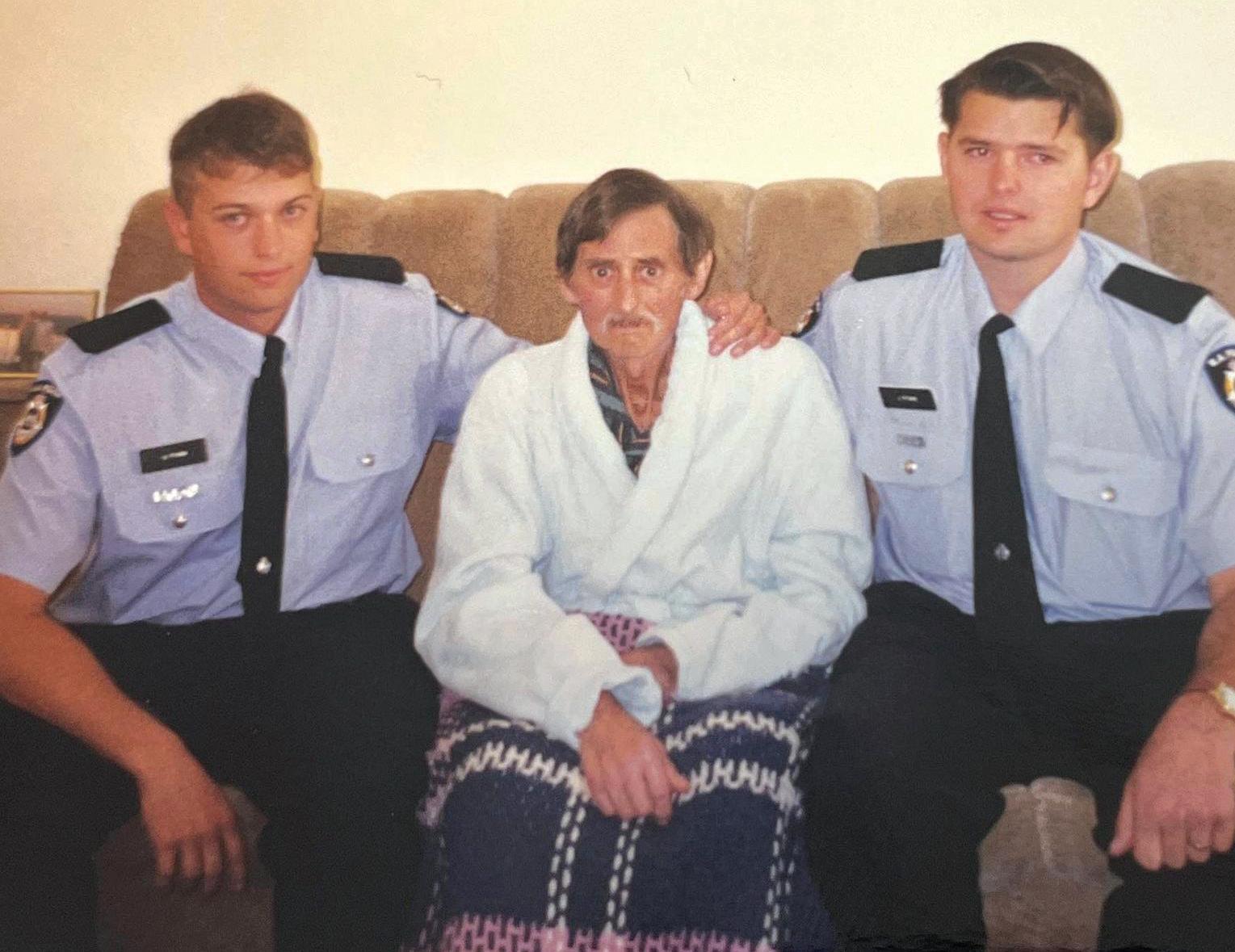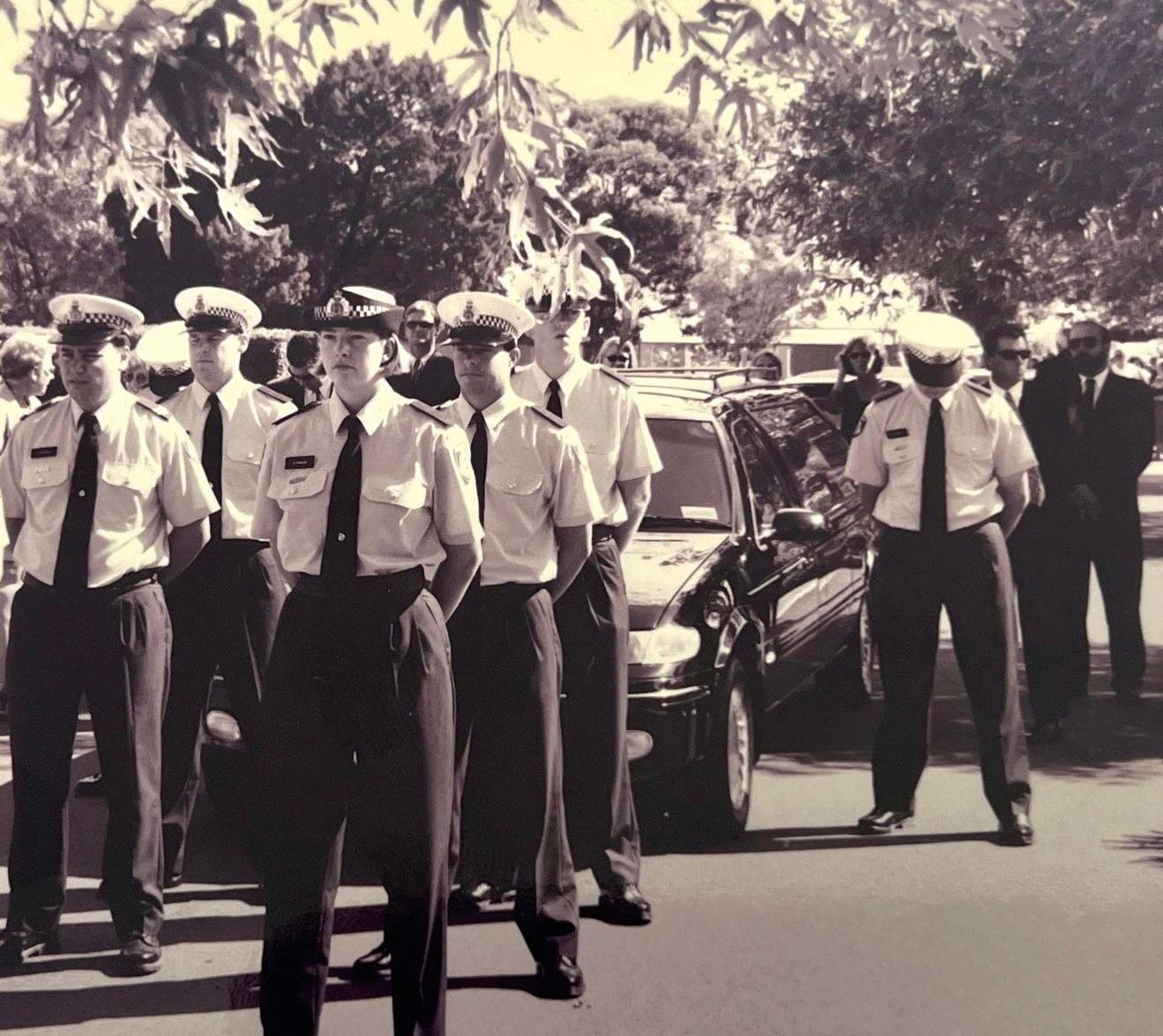
4 minute read
Anthony’s Trauma Recovery: A story of PTSD
BY JESSICA CUTHBERT
It is a continuous challenge living with Post-Traumatic Stress Disorder (PTSD) and one Detective Sergeant Anthony Pymm has been suffering from, now not in silence, for the past few years.
Advertisement
Although he can look back on it now and gently laugh while sharing his story, it wasn’t long ago that he was terrorized by an undiagnosed and debilitating mental illness.
Anthony’s PTSD stemmed from a Moral Injury – the result of bullying, betrayal and general exposure from 23 years’ worth of policing. He was diagnosed in 2021 after his family encouraged him to seek help.
In my final story for Police News, I sat down with Anthony and his wife Monique to share his story in hopes it will help his fellow colleagues and encourage them to speak out.
The beginning
Anthony’s transition into his career with the WA Police Force was a memorable and special one.
He joined at 20 years-old in October of 1999, following in the footsteps of his older brother. It was an exciting career change but a sad time for the family as his father had just been diagnosed with cancer.
During his training at the Academy, his father’s health deteriorated and unbeknownst to him at the time, the Academy staff had started inviting his parents to the grounds to watch him train and perform drills with his squad mates.
His dad had three wishes before he died; to see Anthony graduate from the Police Academy, to have a photo with his two sons in uniform and to celebrate Anthony’s 21st birthday.
At only three weeks out from his graduation, Anthony’s supervisors, superintendents and the Academy principal decided he had done enough to graduate early and arranged a surprise graduation at his home address, all so his father could witness the event.
At the home graduation, his father got his dying wish of seeing his youngest son graduate, his photo with both sons in uniform and as Anthony’s birthday was only days later the family celebrated the same evening.
Anthony told Police News, that only two days later he died.
“I will always be so grateful for WA Police for that whole experience and making that happen. They attended the funeral and let me have some of my squad mates to form a guard of honour,” he said.
“That was a sad but very special time – it exposed me to this greater understanding of the police brotherhood and the Blue Family.”
After graduation, Anthony worked in the Perth metropolitan area at Court Security, the booze bus and Fremantle Traffic.

He then moved into country service in Carnarvon, where he worked closely with detectives. That planted the seed for him to move back metro and apply to be a detective, his first posting being the South Metropolitan Tactical Investigations Group, followed by the Rockingham Detectives. Anthony was a member of the Police Basketball team and it was here where he met his wife, Monique.
After working at several metro and country stations, Anthony transferred to Major Crash in 2020
“A year after starting at Major Crash, that’s when I fell over,” he said.
“I didn’t know it at the time, but I had fallen over due to my PTSD.” ▷
The diagnosis
Anthony’s roles over the years as a frontline officer had him attending and investigating horrific scenes.
“You do it all in this job, attending fatal crashes and collecting body parts off the road to attending the sudden death of a 3-yearold girl – which makes you think of your own young children at home,” he said.
It would be easy to assume that the exposure of these types of confronting scenes could spiral and lead to the cause of a police officers PTSD. However, while it contributed to Anthony’s diagnosis – the foundation of his was a moral injury from extensive bullying and betrayal from a previous work unit.
Anthony’s wife, Detective Senior Constable Monique Pymm said her husband’s behaviour and physical health started to decline out of the blue, with no indication he was struggling.



“At the start we thought he was sick with a physical illness so we were doing lots of testing to work out what it might be,” she said.
“His behaviour changed, he was experiencing dizziness and headaches – he had no energy and wasn’t being his usual self with the family. It’s like he couldn’t be bothered with us anymore.”
She said she knew her husband was unwell but just not in the way she expected.
It was only until family stepped in that they started to think that what was happening was a mental illness rather than physical.
“Our youngest was about 4 weeks old, Anthony was getting ready to go back to work and his shift in behaviour just worsened significantly. Family observed Anthony and picked up that something wasn’t right and started ringing around to find some help,” she said.
“Sometimes it just takes a person on the outside to look in and see something that others might miss. I was Anthony’s wife and I had no idea that something more serious was going on.”
“He didn’t want to do anything, didn’t want to help with the kids – I thought he was just disconnected from us. It didn’t even cross my mind that he was suffering from a mental illness. Looking back now I can see the signs but when I was living it, I had no idea.”
Anthony said he was grateful for family noticing and suggesting he speak with someone.
“I reached out to an Inspector that I trusted and 24 hours later I was sitting in front of psychiatrist, Dr Mathew Samuels at Hollywood Hospital and was diagnosed with PTSD,” he said.
He said when he heard the diagnosis for the first time, he felt angry, guilty and in denial.
“You think you’re fearless and then you feel as though you’ve failed but then on the drive home upon reflection, I just became grateful that I now had some answers as to why I had been feeling and acting this way,” he said.
Following the diagnosis, he now had answers and a plan for recovery – the four week Trauma Recovery and Growth Program, headed up by Douglas Brewer from the WA Centre for Trauma Treatment and Research.





